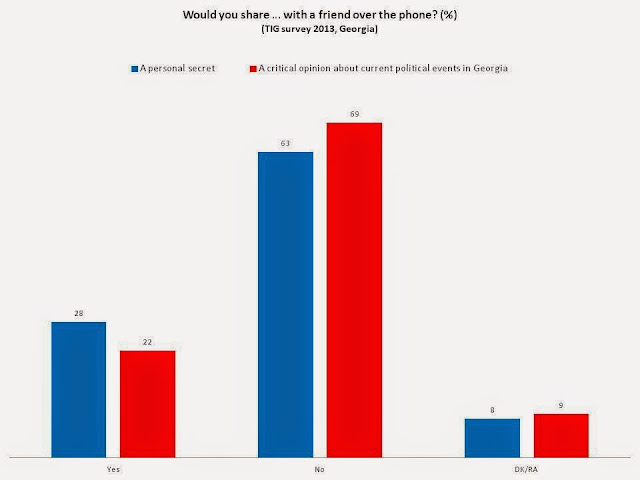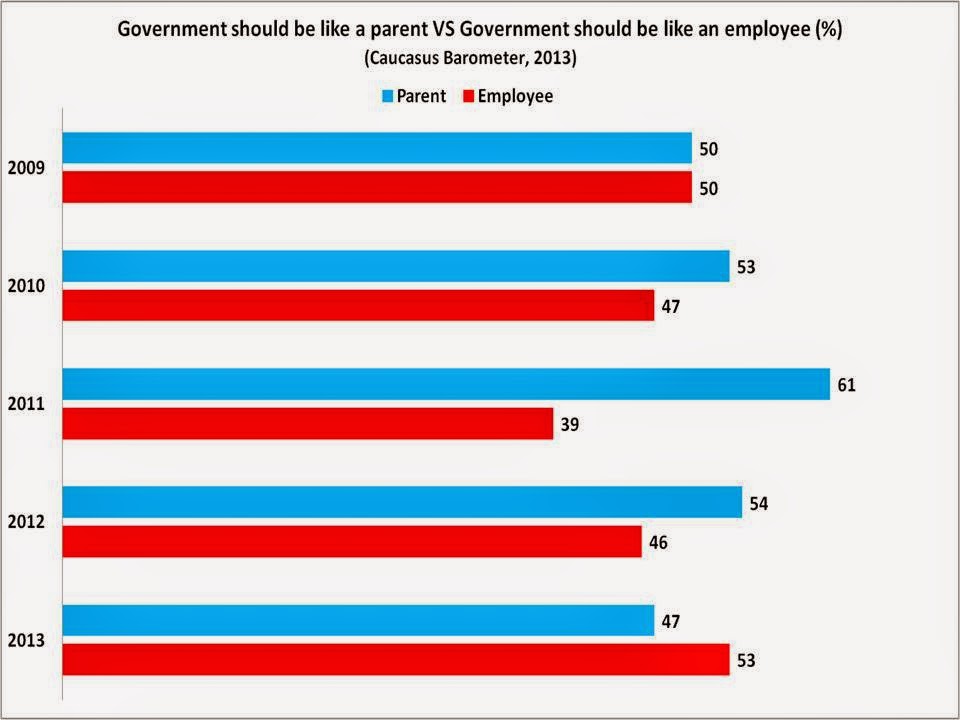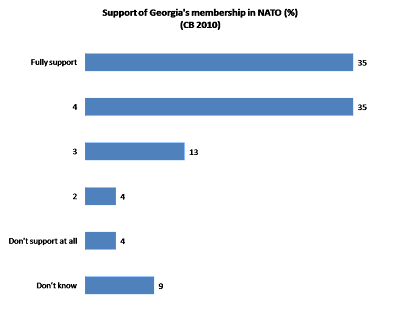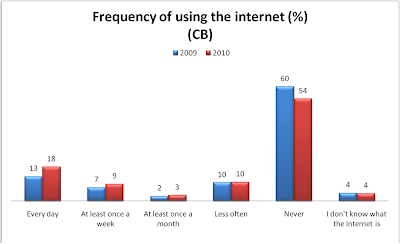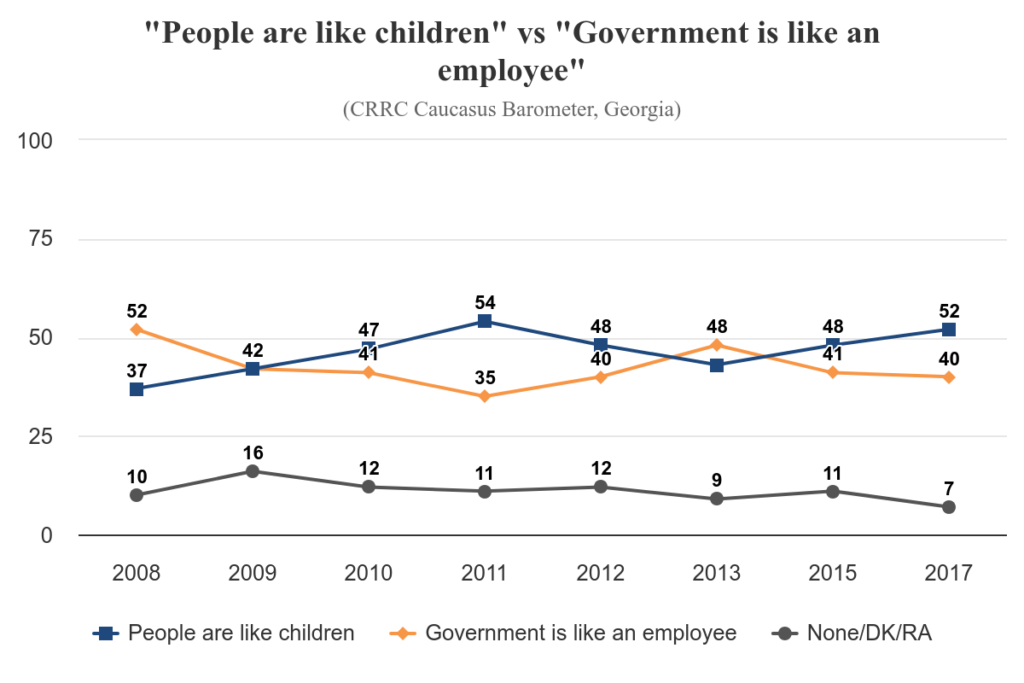
Based on CRRC’s Caucasus Barometer survey data, this blog post describes how people in Georgia see the government, as a “parent” or as an “employee”, and how this differs by settlement type, gender, and education level.
The Caucasus Barometer survey…
